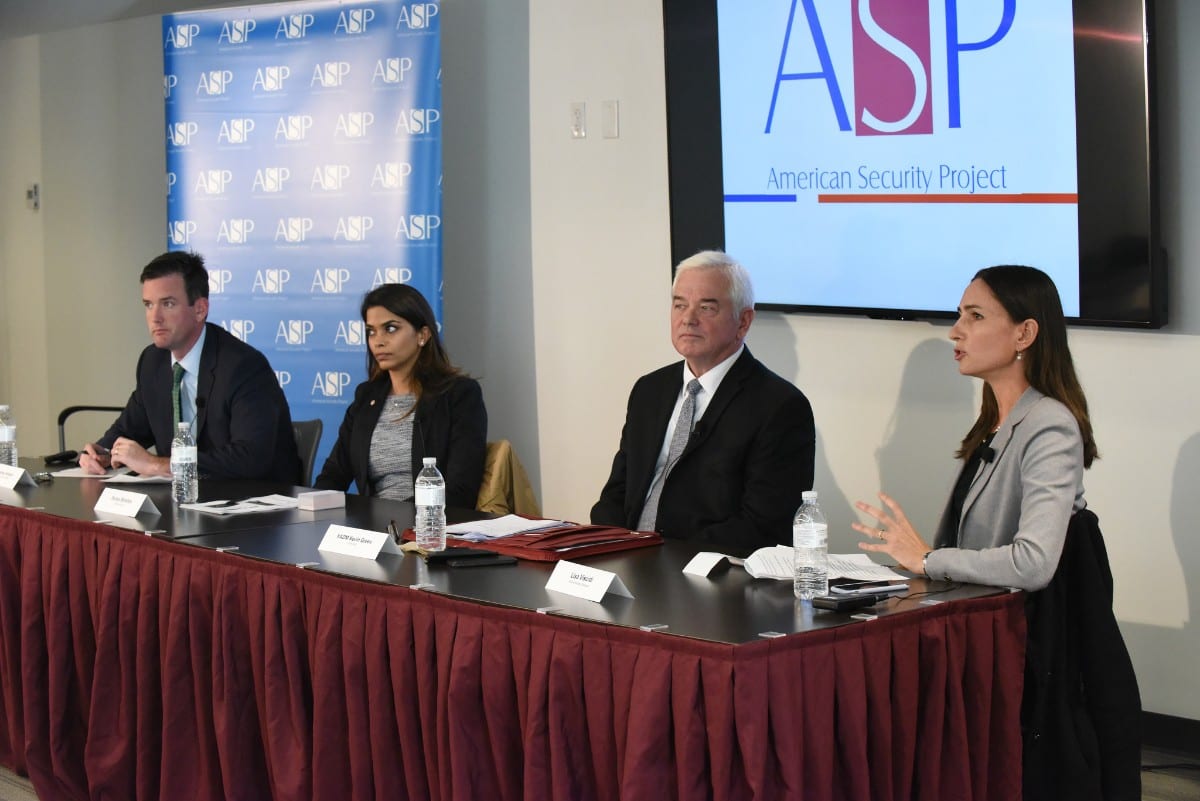
Event Recap: Guyana Building Sustainable Security
Podcast: Play in new window | Download
Subscribe: Apple Podcasts | RSS
On Thursday, October 18th ASP hosted a panel discussion on the implications of Guyana’s recent discovery of oil. The panel included ASP’s Andrew Holland; Vice Admiral Kevin Green, USN (Ret); Sonya Boodoo from Rystad Energy, and Lisa Viscidi from the Inter-American Dialogue.
Boodoo began with a with a presentation which underscored the vastness of Guyana’s new-found oil reserves. She estimated that Guyana has 3.6 billion barrels of removable oil. Its production will scale upwards in the coming decades, reaching 800 thousand barrels per day by the 2030’s. The government of Guyana is set to reap substantial benefits from the oil boom, as it could receive over $25 billion per year by the 2030’s. The total government income from extraction could range from $57 billion (assuming the price of oil at $50 per barrel) to $172 billion (assuming $90 a barrel).
Holland continued by expanding on some of the economic and geopolitical issues that the oil boom could cause for Guyana. He brought up the risk of Guyana falling victim to the resource curse, where nations which discover resources fail to diversify the economy. He also discussed the border disagreement that Venezuela renewed with Guyana after the discovery of oil. Venezuela claims almost 2/3 of all of Guyana’s land. In response, Guyana has set up two military bases along its border with its border with Venezuela. The dispute has been referred to the International Court of Justice in The Hague. Although the government of Venezuela has refused to take part in the process, the government of Guyana is attempting to find a judgment by the court to finally end the dispute. Holland closed saying, “with good policy and a little bit of luck Guyana will be able to stand on its own as an equal and chose its own path in international affairs without regard to where its imports of energy come from.”
Vice Admiral Green expanded on the US’ role in the Caribbean, saying that the US wants “stable progress” in the region. He said however great power competition is currently taking place in the region, and China and Russia are not acting in the best interests of Caribbean member states. “The challenge these nations poise has diplomatic, economic and to be sure military implications as well.”
Viscidi then gave her thoughts on the economic implications of Guyana’s discovery. She opened by praising Guyana for its expected creation of a sovereign wealth fund to manage the economic windfall that comes from the oil revenue. She then outlined Guyana’s sustainable development strategy which is aimed at diversifying its economy by investing in green energy. This is important as the oil industry itself is not expected to produce many jobs, estimates currently peg the total number of jobs as 600 jobs now with the potential of rising to 1,000. She then went on to caution against the building of an oil refinery as they require a high upfront cost, operate at low profit margins and are prone to corruption. Regarding the people of Guyana, she said that they ultimately stand to benefit, explaining that since “Guyana is a country where many people don’t have access to electricity… because of the discovery there is now a chance that they are going to build a natural gas plant which will provide electricity to many more people.”
The panelists covered the many opportunities and challenges presented by the discovery. As Guyana prepares to receive large amounts of revenue from its oil reserves the choices it makes now will determine whether it thrives as a prosperous nation or falls victim to the resource curse and languishes. So far, Guyana has indicated that it understands the challenge, but it must implement the policies needed.





